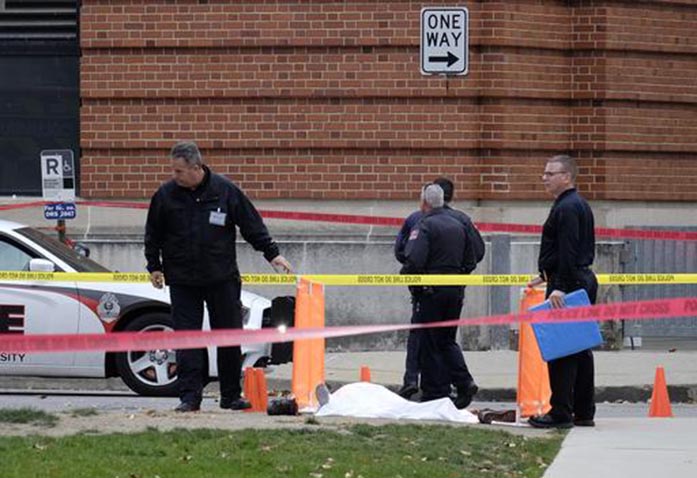On Monday, Abdul Razak Ali Artan, an 18-year-old student of Somali descent, carried out an attack on the Ohio State University campus. Following the event, 11 individuals were hospitalized with one in critical condition. None of the individuals have passed away.
Artan was shot three times and killed by Officer Alan Horujko, whose actions prevented the attack from lasting longer than two minutes. Artan’s attack primarily involved the use of a vehicle and a knife, and although his actions were terrifying, destructive, and atrocious, he may have inadvertently provided the United States with its most concrete argument for gun control in years.
According to CNN, Artan had not been known to be violent and had exhibited no changes in behavior leading up to the attack. He was, however, featured in a story on Humans of Ohio State in which he explained, “I wanted to pray in the open, but I was scared with everything going on in the media.”
CNN also reported that Artan wrote on Facebook, “By Allah, we will not let you sleep unless you give peace to the Muslims. You will not celebrate or enjoy any holiday.”
Through these messages, it is clear that Artan had truly horrendous intentions for his rampage on Monday, but (at least in part) because he carried it out without guns, he was not able to cause nearly the damage he would have liked, and that is the reason there are headlines in national newspapers about other topics. Ohio State is one of the largest public institutions in the country, and if Artan had been armed with guns, the damage he could have caused is terrible to imagine.
Because of recent political developments in this country, however, the attack may have much broader implications than gun control alone.
According to the New York Times, Artan was the son of Somalian refugees and was admitted to the United States in June 2014.
Naturally, following the attack, President-elect Donald Trump was quick to point this fact out in a tweet reading, “ISIS is taking credit for the terrible stabbing attack at Ohio State University by a Somali refugee who should not have been in our country.”
We cannot make the mistake of rooting the motive of Artan’s actions in foreign ideologies. His attack was the result of a distorted reality inflamed by the very rhetoric that Trump preaches, a rhetoric that was born and bred in the USA. Artan was a scared and sick individual, not an ISIS agent.
Trump’s xenophobic preaching and his general fear of “the other” is the exact mindset that enraged Artan. Whether correctly or not, Artan did not feel safe in his own community. While this is absolutely not a justifiable excuse for his heinous actions, this attack may have stemmed from these feelings, and the violence merely further proves to American society that spreading hatred and prejudice based in ignorance will not solve nothing if not worsen the situation.
In fiscal 2015, according to the State Department, the United States welcomed just under 70,000 refugees from around the world. The vast majority (though “vast” is too small a word to capture the true scale) are decent, well-meaning people.
The solution is, therefore, not to accept fewer refugees but to do a better job of supporting these individuals who have lost everything and who have come to America looking for another chance, not for more hatred and danger.



